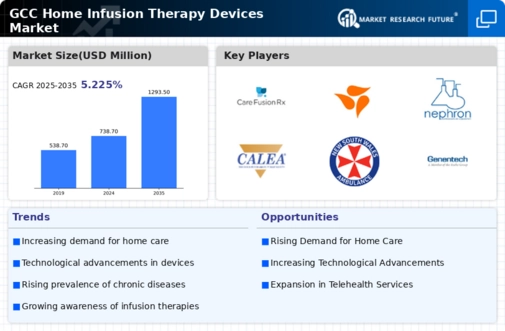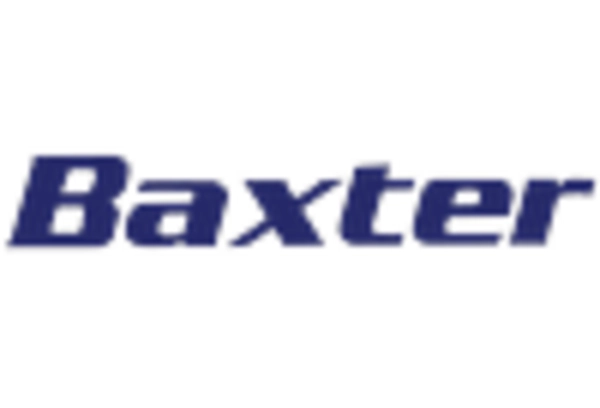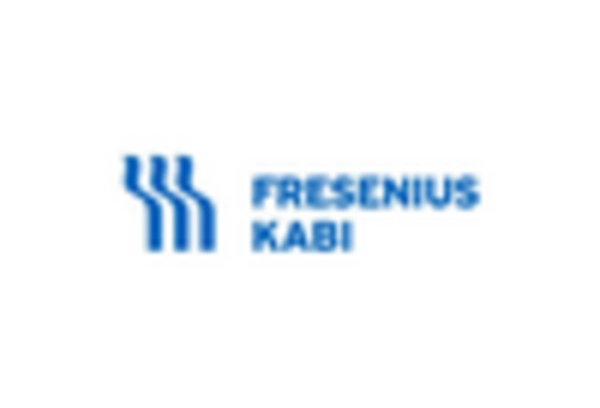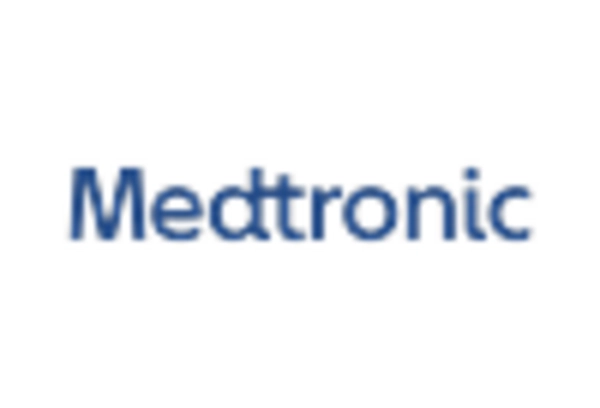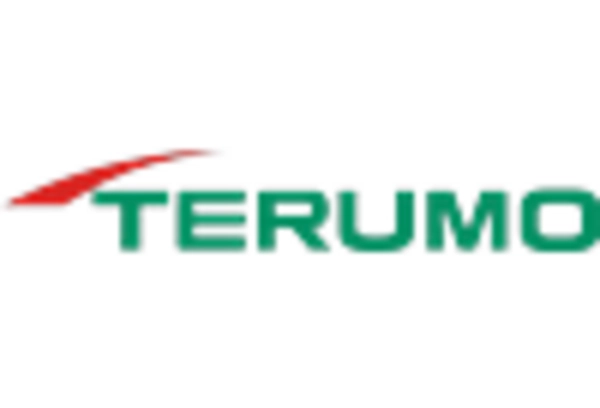Rising Prevalence of Chronic Diseases
The increasing incidence of chronic diseases in the GCC region is a primary driver for the home infusion-therapy-devices market. Conditions such as diabetes, cancer, and cardiovascular diseases necessitate ongoing treatment, often requiring infusion therapies. According to recent health statistics, the prevalence of diabetes in the GCC is projected to reach 20% by 2030, which underscores the demand for effective home-based treatment solutions. This trend indicates a growing need for devices that facilitate safe and efficient drug delivery at home, thereby enhancing patient compliance and reducing hospital visits. As healthcare systems evolve, The home infusion therapy devices market is likely to expand to meet the needs of this demographic. It will provide innovative solutions that cater to the complexities of chronic disease management.
Increased Focus on Patient Independence
There is a growing emphasis on patient independence and self-management in the GCC healthcare landscape, which is positively impacting the home infusion-therapy-devices market. Patients are increasingly encouraged to manage their own health conditions, leading to a demand for devices that are easy to use and facilitate self-administration of therapies. This shift aligns with broader healthcare trends that prioritize patient empowerment and autonomy. As a result, manufacturers are developing user-friendly infusion devices that cater to this need, potentially increasing market penetration. The home infusion-therapy-devices market is likely to benefit from this trend as more patients seek to take control of their treatment regimens in the comfort of their homes.
Technological Innovations in Infusion Devices
Technological advancements in infusion devices are significantly influencing the home infusion-therapy-devices market. Innovations such as smart infusion pumps, which offer features like dose error reduction systems and wireless connectivity, are enhancing the safety and efficacy of home therapies. The market for these devices is expected to grow at a CAGR of approximately 8% over the next five years, driven by the demand for more precise and user-friendly devices. Furthermore, the integration of telehealth capabilities allows healthcare providers to monitor patients remotely, ensuring timely interventions when necessary. This technological evolution not only improves patient outcomes but also fosters a more efficient healthcare delivery model, thereby propelling the home infusion-therapy-devices market forward.
Supportive Government Policies and Initiatives
Supportive government policies and initiatives in the GCC region are fostering growth in the home infusion-therapy-devices market. Governments are increasingly recognizing the importance of home healthcare solutions as a means to alleviate pressure on hospital systems and improve patient care. Initiatives aimed at enhancing healthcare infrastructure and promoting home-based therapies are likely to create a conducive environment for market expansion. For instance, funding programs and incentives for home healthcare services can stimulate demand for infusion devices. This supportive regulatory landscape suggests that the home infusion-therapy-devices market will continue to thrive as stakeholders align with government objectives to enhance healthcare delivery.
Growing Demand for Cost-Effective Healthcare Solutions
The rising cost of healthcare in the GCC region is prompting a shift towards more cost-effective treatment options, thereby driving the home infusion-therapy-devices market. Home infusion therapy is often less expensive than inpatient care, which appeals to both patients and healthcare providers. A study indicates that home-based therapies can reduce hospital readmission rates by up to 30%, leading to significant cost savings. As healthcare systems seek to optimize resources and improve patient outcomes, the adoption of home infusion therapies is likely to increase. This trend suggests that the home infusion-therapy-devices market will continue to expand as stakeholders prioritize cost efficiency without compromising quality of care.


